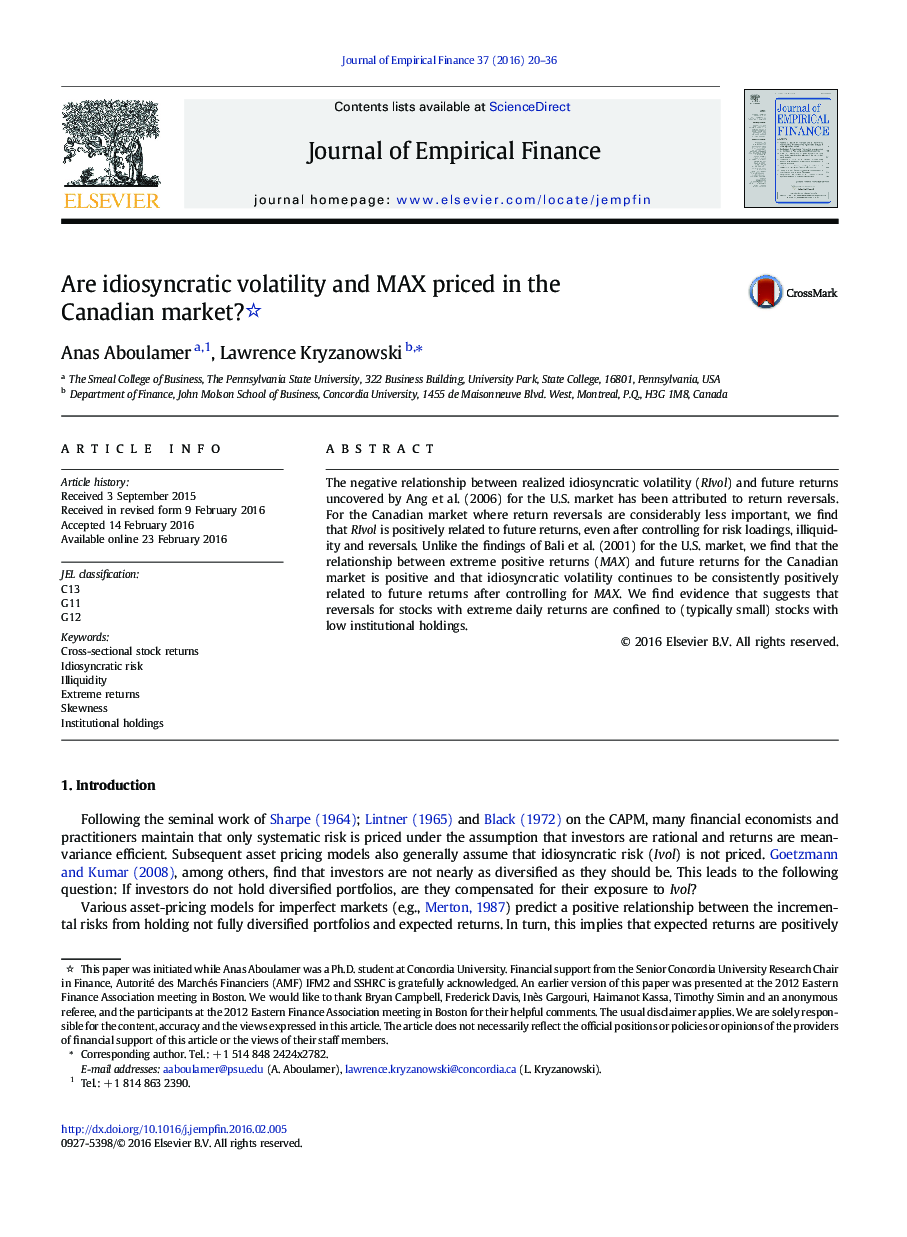| Article ID | Journal | Published Year | Pages | File Type |
|---|---|---|---|---|
| 7360649 | Journal of Empirical Finance | 2016 | 17 Pages |
Abstract
The negative relationship between realized idiosyncratic volatility (RIvol) and future returns uncovered by Ang et al. (2006) for the U.S. market has been attributed to return reversals. For the Canadian market where return reversals are considerably less important, we find that RIvol is positively related to future returns, even after controlling for risk loadings, illiquidity and reversals. Unlike the findings of Bali et al. (2001) for the U.S. market, we find that the relationship between extreme positive returns (MAX) and future returns for the Canadian market is positive and that idiosyncratic volatility continues to be consistently positively related to future returns after controlling for MAX. We find evidence that suggests that reversals for stocks with extreme daily returns are confined to (typically small) stocks with low institutional holdings.
Keywords
Related Topics
Social Sciences and Humanities
Economics, Econometrics and Finance
Economics and Econometrics
Authors
Anas Aboulamer, Lawrence Kryzanowski,
